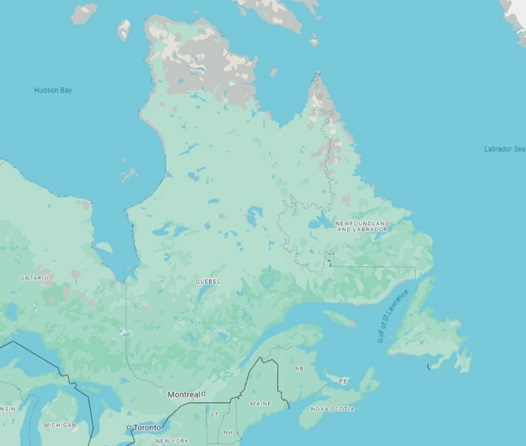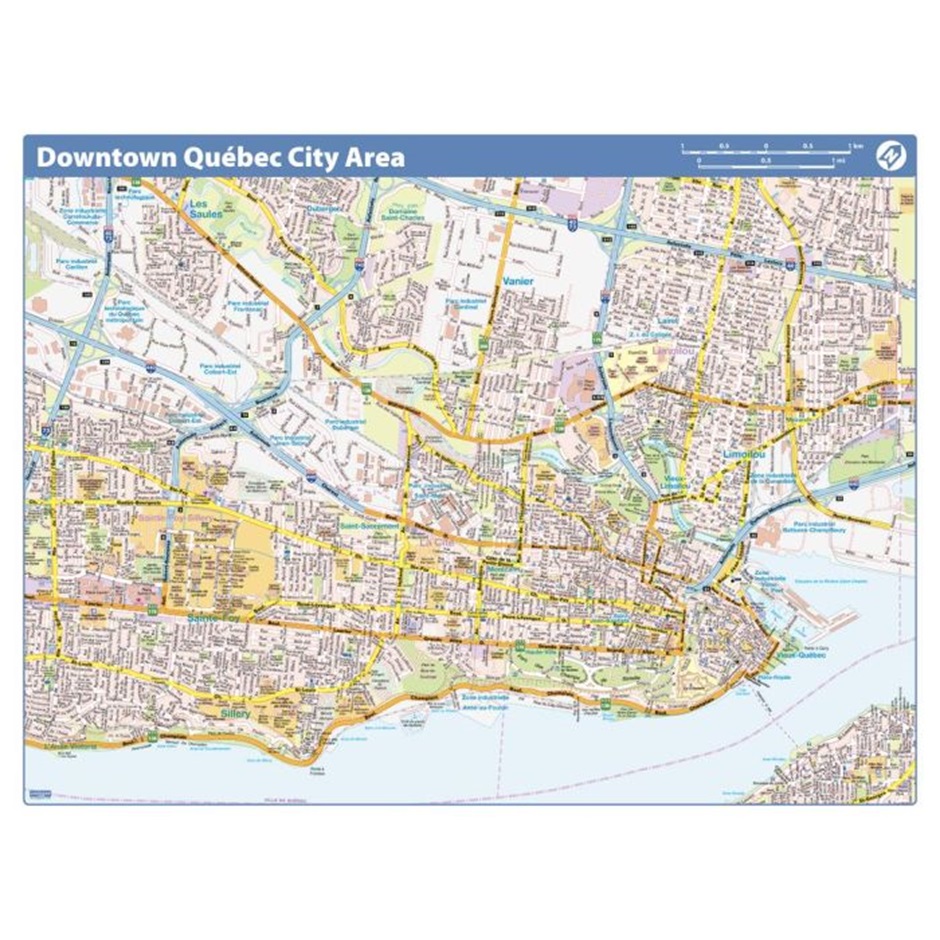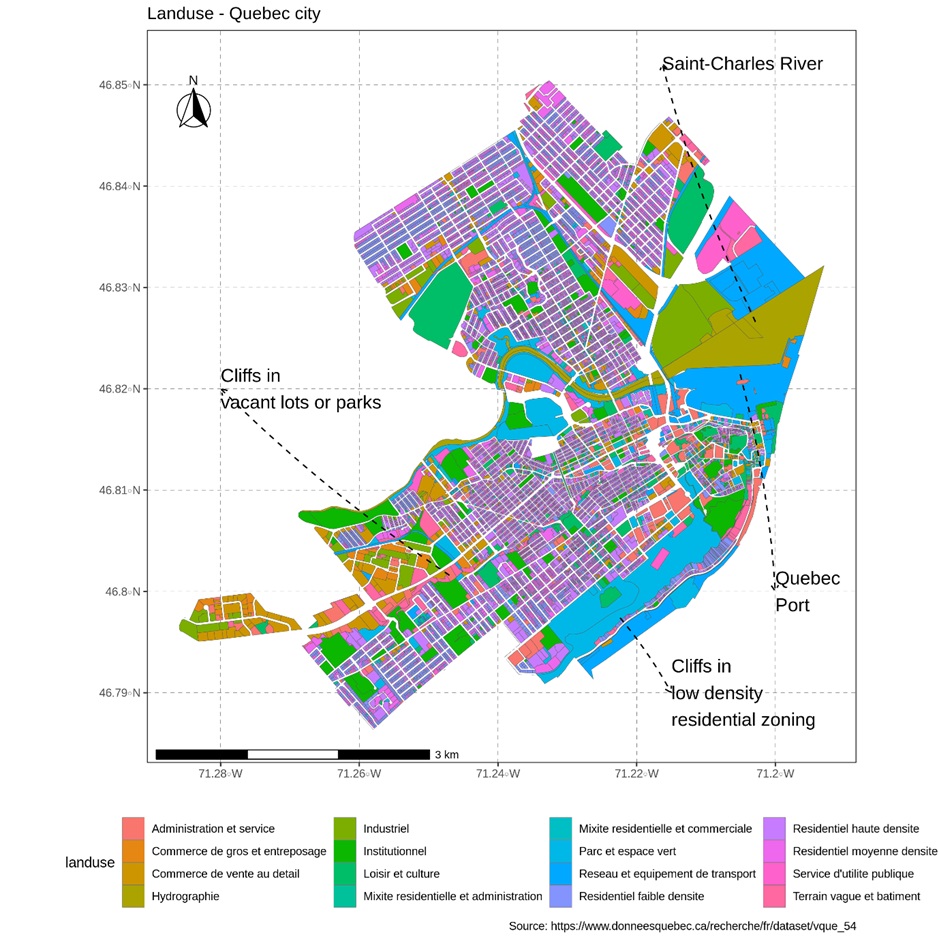Quebec is the largest province of Canada by area and is known for its beautiful culture and rich history. Quebec’s rich and diverse landscape includes forests, rivers, mountains, and urban centers. The province expands over 1.668 million square kilometers (which is around 643.800 square miles). The province alone occupies 15% of Canada’s total land area, stretching from the Hudson Bay in the North to the US Border in the south ( a distance of 1,600 km or 1000 miles). At its widest point, Quebec stretched about 2,000 km (1,240 miles) from east to west.
Quebec is also the second most populous province of Canada, with a population of 8.6 million people. It’s capital is Quebec City, and the largest city is Montreal. The Montreal Metropolitan area accounts for over 4 million people in Quebec. Both locations are cultural and economic hubs. Quebec is bordered by Ontario to the west, Newfoundland & Labrador and New Brunswick to the East, and the US to the south.

Primary industries for the province include aerospace, information tech, mining, pulp/paper, agriculture and manufacturing. Quebec’s large supply of fresh water makes the province Canada’s largest producer of Hydroelectricity. The construction industry and retail trade sectors are also significant in Quebec.
Culturally, Quebec stands out for its deep-rooted European influence and French-speaking majority. The lifestyle in the province is varied including everything from the cosmopolitan Montral to the nature-oriented lifestyle.
Real Estate
Quebec’s real estate market has been seeing consistent growth, with Montreal experiencing a notable boom. In-spite of few slowdowns due to rising interest rates in 2023, home prices in Quebec remained robust, particularly in cities like Montreal, where the demand for condos and multi-family units has surged. Average home prices across the province are significantly lower than in provinces like British Columbia and Ontario, making Quebec a relatively affordable place to live.Most Popular Types of Property
Within the province, there is a wide variety of available residential real estate. Depending on the urban or rural area and the choice of city, the prevalence of one type of property type may increase or decrease. The options include single-family homes in Quebec, Condos in Quebec, Duplexes and Triplexes in Montreal, Quebec, Multi-unit residential buildings in Quebec, and rural properties including cottages, farms, waterfront properties. The most popular types of residential real estate are:- Apartments: 73%
- Single family homes: 15%
- Semi- detached homes: 7%
- Row: 5%
Real Estate Trends
In 2024, Quebec has seen steady growth, specially in the 2nd quarter for real estate. As of September 2024, the benchmark prices were at around CAD 538,190 which is 6.7% Year over year increase. The average home price in Quebec was around CAD 509,198 which is a 6.8% YOY increase in comparison to 2023. A significant number of the real estate transactions were contributory of Montreal. Looking at the transactions as of September 2024:- Quebec Number of houses sold: 6,960 (19.5% YoY)
- Montreal Number of houses sold: 3,201 (16.9% YoY)
- Montreal Active Listings: 18,078 (6,207 new listings)
Rural and Urban Areas
Quebec’s real estate market is divided between urban areas like Montreal and Quebec City, along with rural areas such as the Eastern Townships and Laurentides. Urban areas offer high-density residential options, rural areas are known more for larger properties. Cities like Montreal and Quebec City offer vibrant, fast-paced lifestyles with access to cultural amenities, jobs, and public transportation. Real estate in these areas is typically more expensive, and properties tend to be smaller. The countryside offers larger properties at lower prices. The Laurentides and Eastern Townships are popular for cottages and vacation homes, attracting those seeking tranquility and outdoor activities. These areas also tend to offer lower property taxes and a slower pace of life. With picturesque landscapes, the lifestyle offers lower property costs but with the availability of fewer amenities than in cities.Financial Considerations
In recent years, Quebec’s real estate market has stayed strong, despite changing interest rates. As of 2024, the mortgage market is beginning to settle after a period of ups and downs caused by economic challenges and high interest rates. These rates are starting to lower, which should make it easier for buyers later in the year. Homebuyers in Quebec have different mortgage options, such as fixed-rate (where the interest rate stays the same), variable-rate (where it can change), and a mix of both. The best 1-year fixed insured mortgage rate is Quebec is 5.99%; 2-year fixed insured mortgage rate is Quebec is 5.59%; 3-year fixed insured mortgage rate is Quebec is 4.69%; 4-year fixed insured mortgage rate is Quebec is 4.44%; 5-year fixed insured mortgage rate is Quebec is 4.19%.Property Registration and Taxes
Homeowners are required to pay both municipal and school property taxes annually, which are calculated based on the assessed value of the property. This assessment, along with the corresponding tax amounts, can usually be found on the websites of your municipality and school board. Your responsibility for these taxes begins the day you officially take ownership of the property. When signing the deed of sale, the notary will determine your share of the current year’s taxes. If the seller has already paid the taxes for the entire year, you will need to reimburse them for the portion of the year that you own the property. More detailed information may be found on the Housing territory page on the official page of the Province of Quebec.Zoning and Land Use
The regulations for zoning in Quebec vary by municipality. The Act Respecting Land Use Planning and Development (ALUPD) governs land use in Quebec, ensuring municipalities align the zoning with broader provincial goals. Municipal control on zoning implies there may be variability in development and construction between cities and towns. Zoning is divided into residential, commercial, agricultural, and industrial categories. Within some regions of the province with sensitive ecosystems (wetlands, areas of high ecological value), the zoning laws strictly restrict the development to protect the environment. A new addition to this is that the municipalities may now expropriate land without compensation to the owners if it serves public health safety or ecological goals. More land use and zoning details may be found on the Government website for the municipalities or the province of Quebec.

Popular Cities

